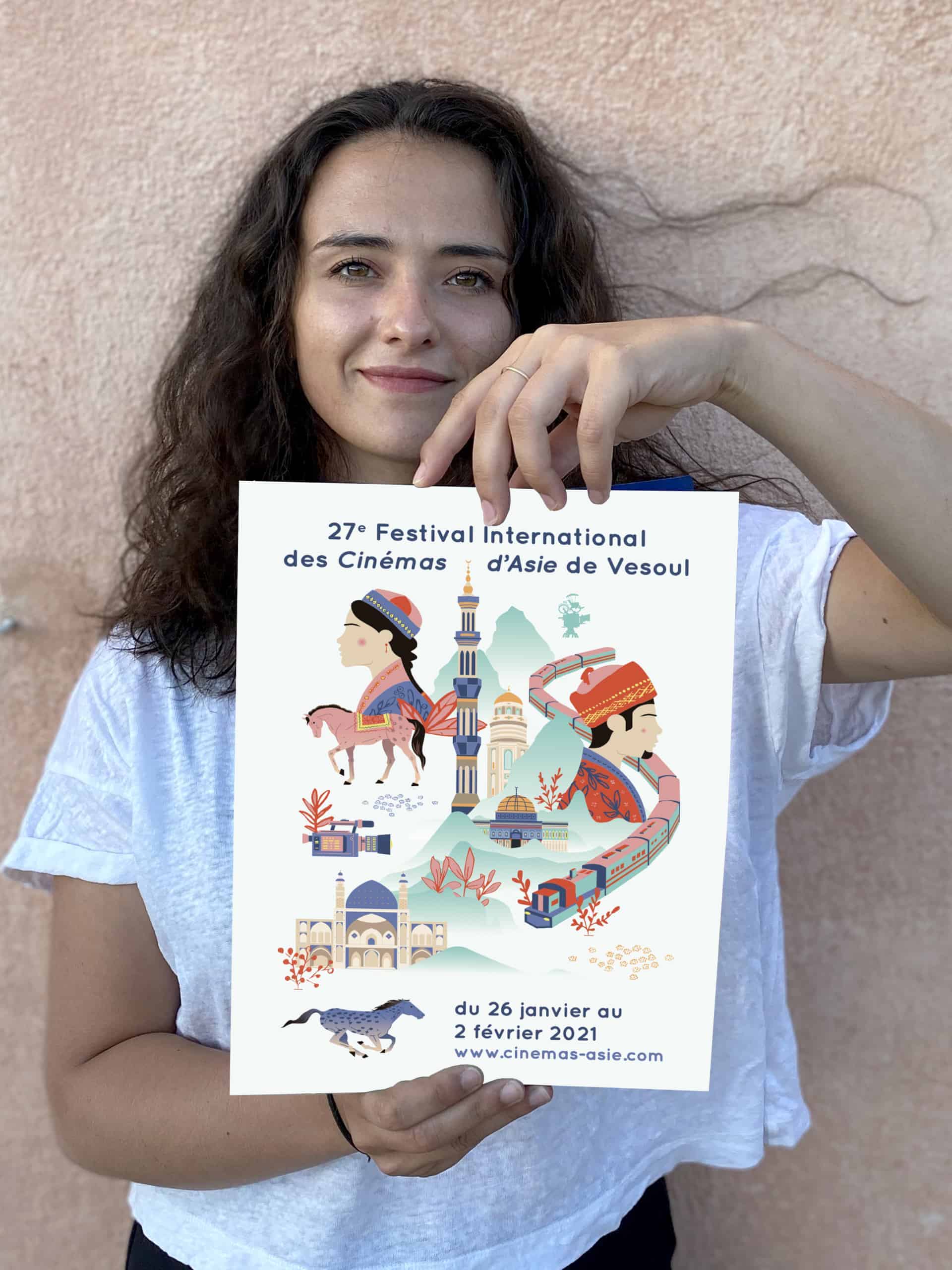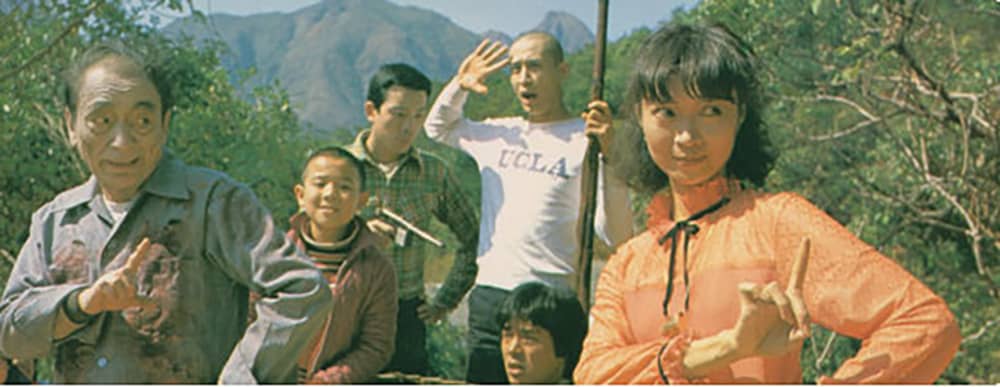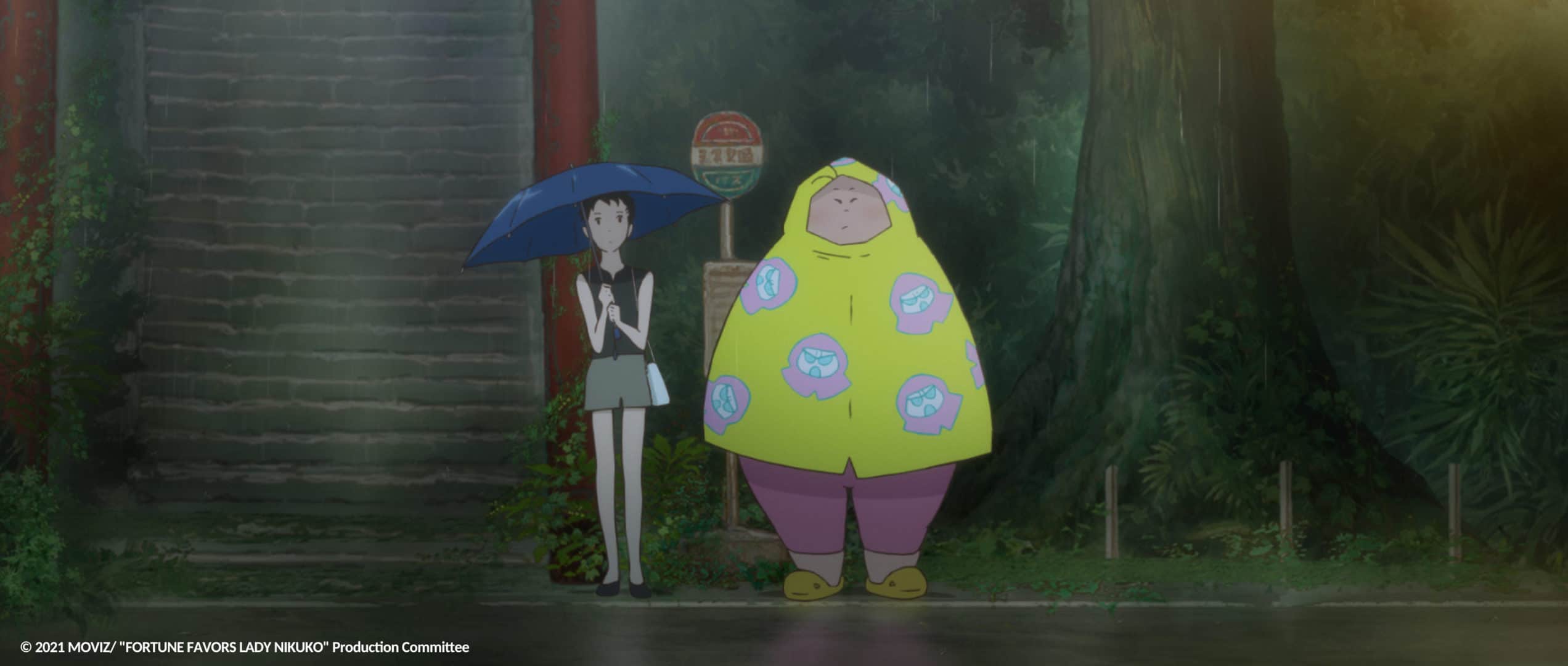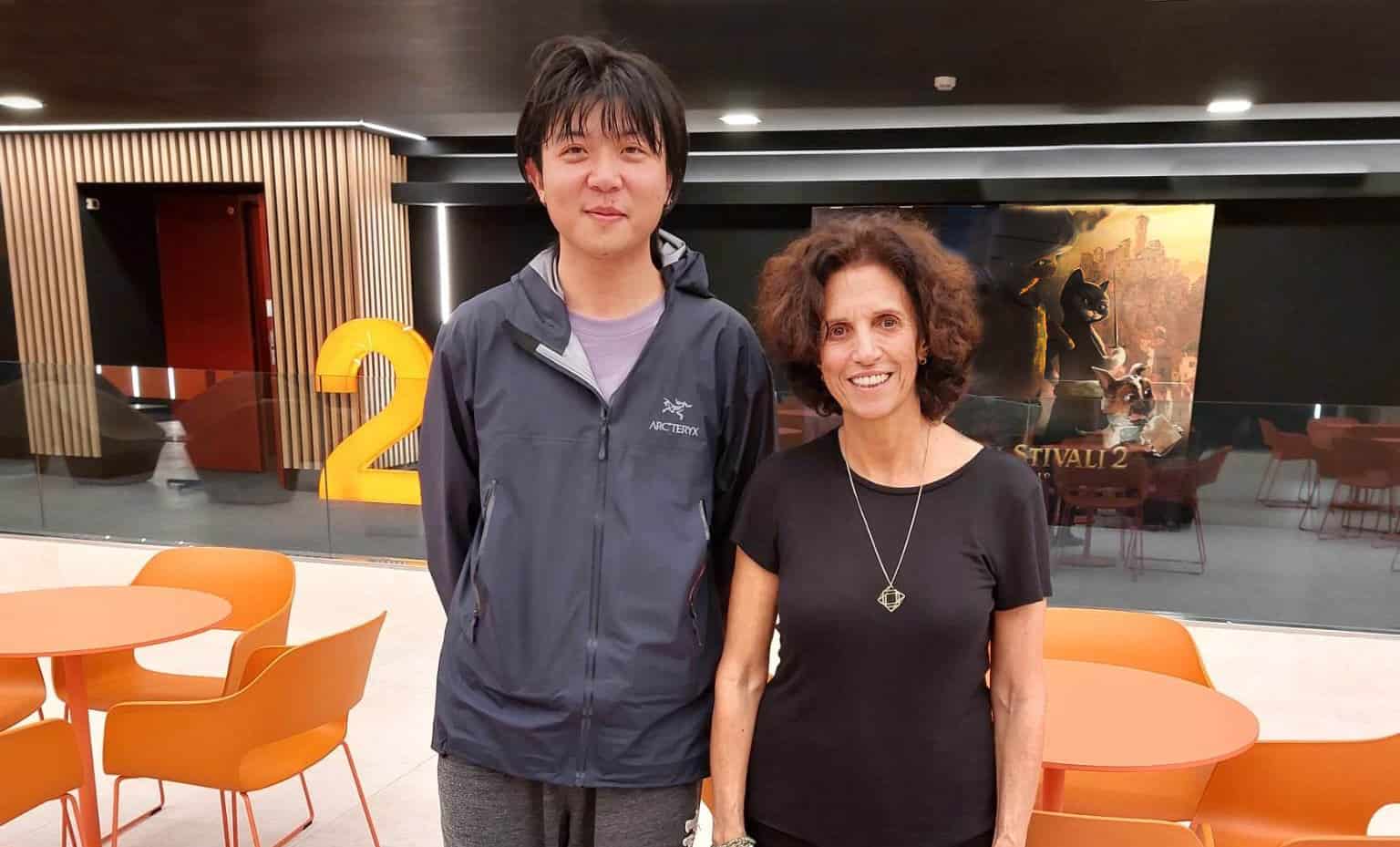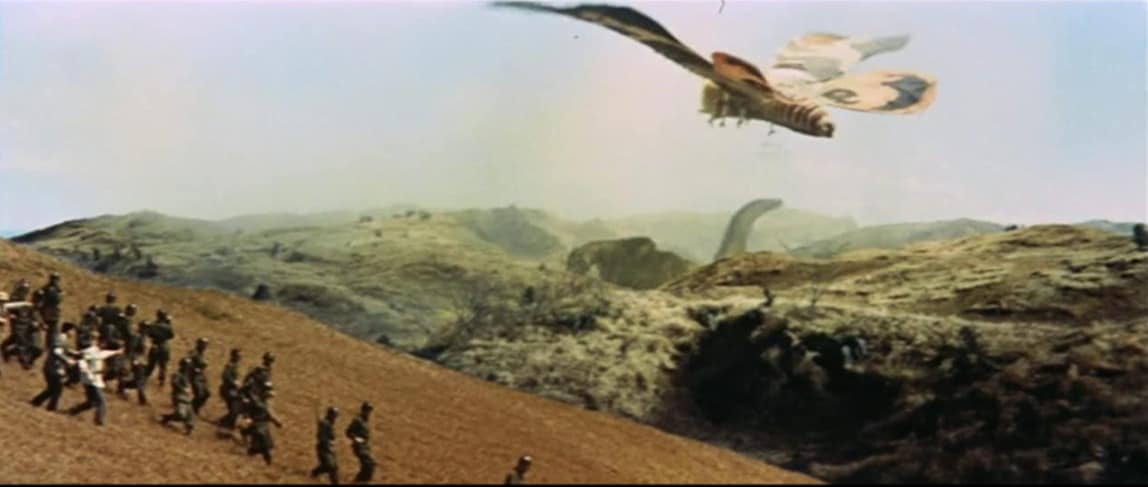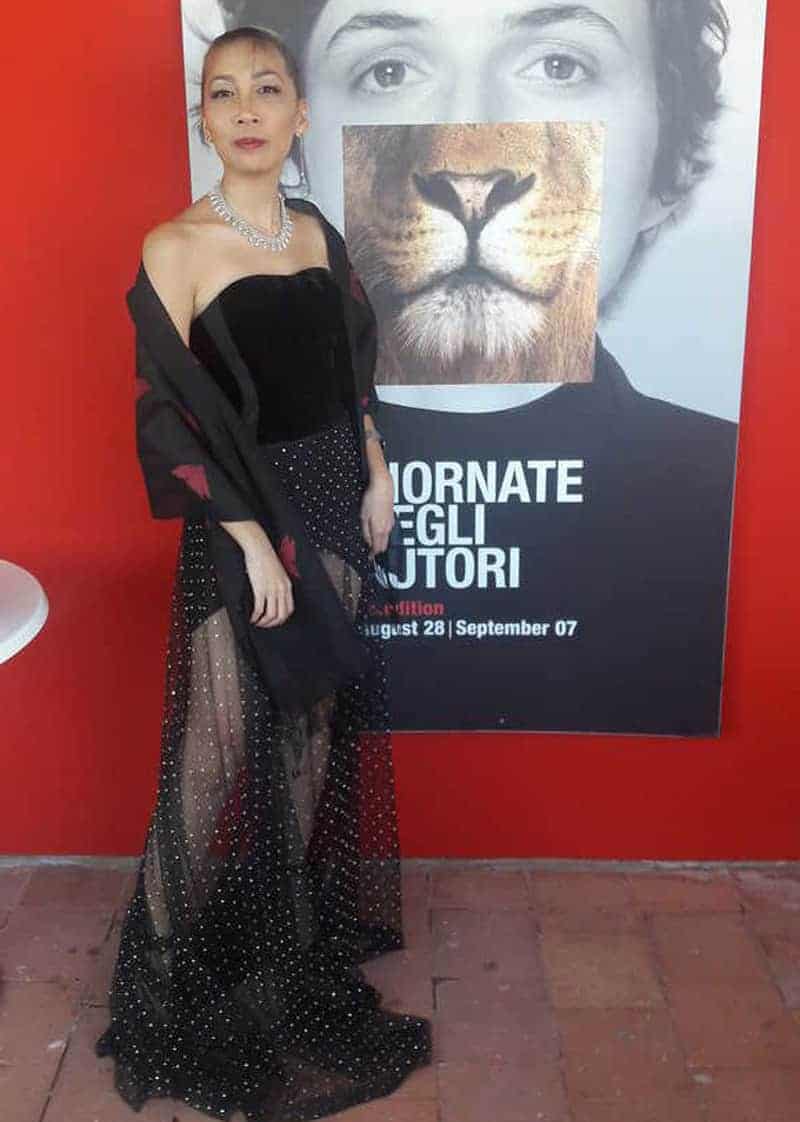Mohammad Reza Keivanfar was born in 1985 in the North of Iran, Golestan Province. He was Abbas Kiarostami's workshop student. He direted several short features selected in many worldwide film festivals, such as, Noise, Death of Lagoons and Diatome (2013), Child Labor (2014) and After Spring in 2017. “Among the Hills” is his debut feature.
On the occasion of “Among the Hills” screening at FICA Vesoul , we speak with him about Abbas Kiarostami, education and fundamentalism, the details of the movie, Iranian cinema and other topics.

Can you tell us about your cooperation with Abbas Kiarostami?
I was post-producing my movie, and I got in touch with Mr. Kiarostami and told him I had a project. He asked me to send it to him and I did. When I got in touch with him, he told me that he was coming to my city, and when I asked him why he told me that he had a project about old doors, and asked me if there are any valuable old doors in my city. So, I also asked to help him while he was in my city, in order to learn from him. When I sent him some of my photos, he actually called me. I was shivering during the phone call because I was so excited that he called me. He asked me where I was going to be situated on Friday and I told him, “Wherever you want”. Then he came to my city and later on I subscribed to his courses for one year. Every month, we got together with Kiarostami during that year and we discussed our projects with him and eventually I took my project to him and he corrected it twice. I asked for his help, to be my counselor on this film and he accepted.
Why did you decide to shoot in that specific, remote area?
Because I live there, my city is nearby and I know the area since I have been taking photos there. So, I knew the area, the people and I also knew that such a “boss” (the one in the movie) is there too. I knew all these stories that appear in the movie since I have been roaming around the area for many years and also the issues with education and the place of women. Furthermore, the area emits a sense of mysticism and hidden things and this helps to bring a kind of ambience that I wanted included in the film.
So, the film is completely realistic, this is the situation in the area at the moment? There is no school, for example?
Yes, this is the situation and not only there, the same is happening in all the poor areas, money is lacking and because of the crisis, it is getting even worse somehow, because there is no money allocated to education at the moment. Some of the stories in the film I made up, but the roots, the truth, are there.
The state does not spend money for these areas then?
No, because of the crisis, the government cannot spend much there, and that is why the situation is becoming worse and worse.
The film shows the problems lack of education leads to. What is your opinion on the subject?
I felt that during my education, we learned a lot of things that are unnecessary, and I started thinking about this problem and I became quite sensitive to it. I think that the basis of any kind of evolution is education. And what we see in the film, about the women's lives being solely connected to having children, is due to this issue, the lack of education. This is also an issue of fundamentalism and obscurantism. The place of women in Iran does not depend on geography, the same applies to Afghanistan, for example, you encounter this kind of problems all over the world, wherever there is fundamentalism, lack of education and obscurantism, they are all connected.

Can you tell me about the cinematography in the film, what was your purpose in the visual aspect?
We have a very beautiful landscape in the area as you can see in the film, with the hills and all the nature, but there are so many problems there that contrast the beauty of the nature, and I wanted to show this contrast, between the tragedy of humans and the exterior beauties. This is also the concept of reality, we see some things and we perceive them as reality but underneath, there are also other realities, other things going on, and that is also a contrast I wanted to show. I tried to stick to reality, there are no “heroes” in my movie, and everything is real. The first shot of the movie, when you see the car coming down, it takes place in an arid kind of place, with no green, and it also shows symmetry. For me, this is a very pessimistic shot but in the end of the film, when the teacher and the doctor drive in the Land Rover, the area is lavish, they are speaking about life, how life continues and with this I wanted to give an optimistic note.
Can you tell us a bit about the casting in the film?
The doctor and the teacher are theater actors, and the rest are just locals, nomads who live there.
What about the old guy, the car mechanic? He seems as if he is always drunk in the movie.
He is also from the area; he used a lot of drugs, opiates and also smoked them.

What is your opinion about Iranian cinema at the moment?
Regarding the technical aspects of film, I think Iranian cinema is at a very high level. However, the level of philosophy and thinking about the film is decreasing. A number of filmmakers want to go towards Hollywood-style of filmmaking, but they should look beside them and see that there are many original things to express through film instead of copying Hollywood. There are a lot of subjects in Iran to put in films. There is however an optimistic side, since a lot of independent filmmakers want to deal with original ideas, although they usually have no budget. In my case for example, the film was made by 7 people, my brother and some friends. We gathered the money and it took us four years to finish it. The actual filming took 11 days, but the post-production was delayed because we were always looking for money.
Are you working on anything new?
Yes, I am working on a project about Kazakhs who were pushed outside the Soviet Union by Stalin. Some of them ended up in Iran and this is the story of an old man who wants to go back to Kazakhstan, but never gets the chance. When he proposes it to his family, they decline, and then he sells everything, takes the money and asks a truck driver to take him to Kazakhstan. The last night, after he has sold of everything, he comes to his house and finds it empty. He takes a sheet, lies down, and puts the sheet over him. The next day, we see the truck that he hired, carrying a coffin.



